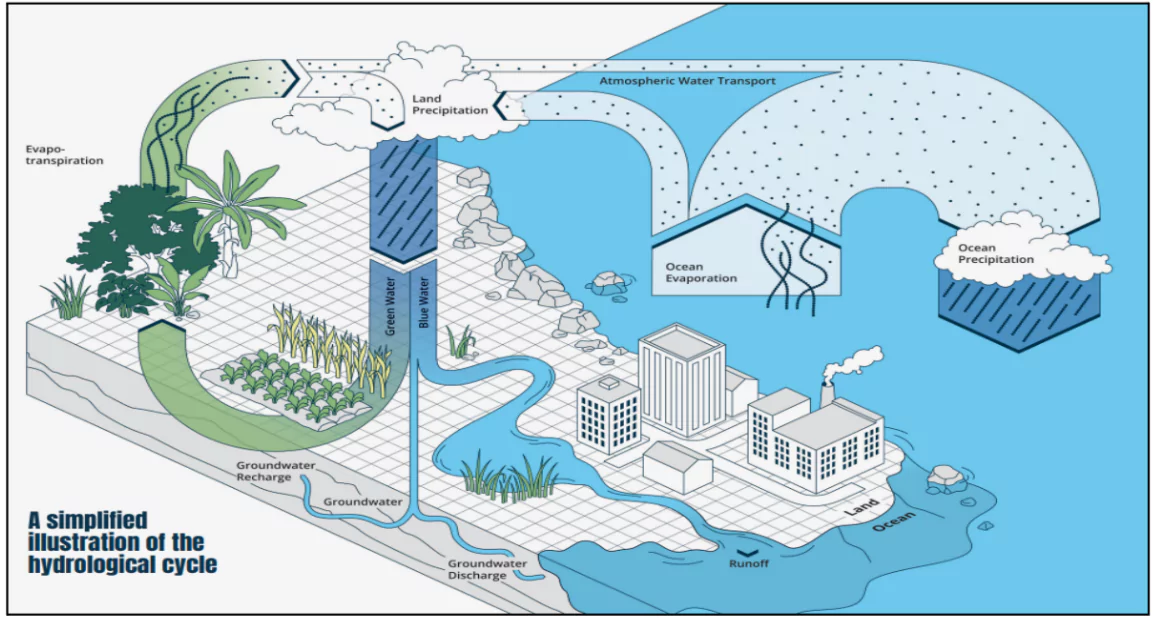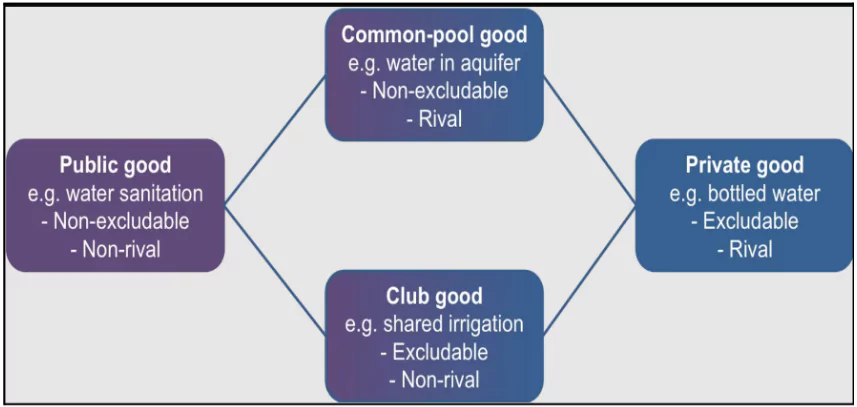The recent report titled ‘The Economics Of Water: Valuing the Hydrological Cycle as a Global Common Good’ by the Global Commission on the Economics of Water, highlights the escalating global water crisis and its disproportionate economic impact on lower-income countries.
Key Findings of the Report
- Economic Loss: The lower-income countries are projected to experience an average GDP loss of up to 15% by 2050, nearly double the global average loss of 8% in 2024.
- Impact on India: The looming water crisis will cost 14.34% of India’s GDP by 2050.
- Factors of the crisis: It attributes this crisis to poor economic practices, unsustainable land use, and water mismanagement, compounded by climate change.
- Anthropogenic Influence: For the first time, human activity is disrupting the natural water cycle, undermining economic stability and human well-being.
- Basic need Vs Dignified life need: The report highlighted that every person requires around 4,000 liters of water daily for a dignified life, including essential consumption and food security.
- This need far exceeds the typical figure of 50-100 liters for basic health needs.
- As the availability of water diminishes, food security and human development are at risk.
- Green and Blue water: The report also distinguishes between “green water” (soil moisture) and “blue water” (surface and groundwater).
- It stressed on the critical importance of green water for rainfall, climate stability, and economic resilience.
Enroll now for UPSC Online Classes

Suggested measures to overcome the Water Crisis

- Water as public good: The Commission suggested rethinking water governance, advocating that water be treated as a global public good, not a personal commodity.
- Need of collaborative effort: The report emphasizes collective action across nations to address this crisis.
- Five-Point Agenda: The Commission proposed a five-point agenda, including:
-
- Revolutionizing food systems to reduce water usage in agriculture.
- Conserving natural habitats and restoring degraded ecosystems.
- Establishing a circular water economy to reclaim freshwater from wastewater.
- Encouraging sustainable innovations.
- Ensuring equitable access to clean water.
Global Commission on the Economics of Water (GCEW)
- Objective: To make a significant and ambitious contribution to the global effort to spur change in the way societies govern, use and value water
- The Commission’s ultimate goal is a “Global Water Pact” to secure funding and enhance water governance globally, recognizing that the water crisis now threatens nearly all Sustainable Development Goals (SDGs)
- It was launched in May 2022 with a two-year mandate.
- It presented the evidence and the pathways for changes in policy, business approaches and global collaboration to support climate and water justice, sustainability, and food-energy-water security.
- The Commission is convened by the Government of the Netherlands and facilitated by the Organisation for Economic Co-operation and Development (OECD).
- Working partners :The GCEW is executed by an independent and diverse group of eminent policy makers and researchers in fields such as:
- OECD
- Potsdam Institute for Climate Impact Research
- Indian Institute for Human Settlements
- University College London
- Australian National University
- University of Amsterdam
|
![]() 18 Oct 2024
18 Oct 2024

